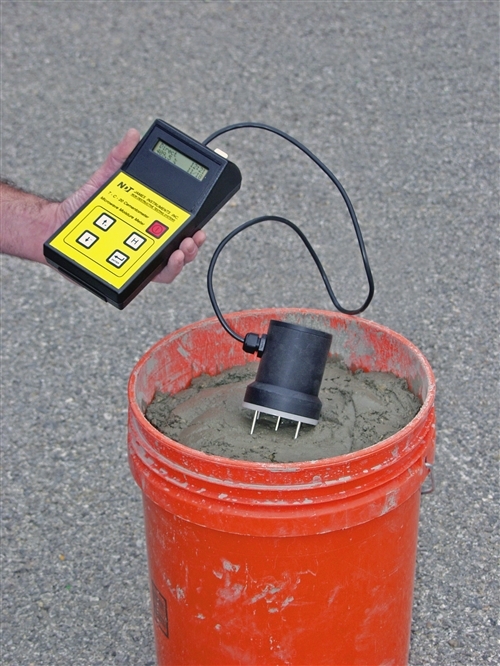Why Every Homeowner Needs a Moisture Meter: Key Advantages and Functions
Why Every Homeowner Needs a Moisture Meter: Key Advantages and Functions
Blog Article
The Ultimate Guide to Wetness Meters: A Comprehensive Review and Just How They Can Save You Cash
Wetness meters serve as indispensable tools in detecting and keeping an eye on moisture web content in materials, helping in stopping expensive damages and making certain the high quality of items. Comprehending the subtleties of various types of moisture meters, their applications, and the possible cost-saving advantages they provide can be a game-changer for services and professionals alike.
Kinds Of Dampness Meters
One usual kind is the pin-type wetness meter, which gauges the electric resistance in between two pins put right into a material. Pinless moisture meters, on the other hand, usage electro-magnetic sensor plates to scan a larger location without causing damage to the material's surface.

Infrared dampness meters measure the thermal residential or commercial properties of a material to establish its moisture web content non-invasively, making them beneficial for applications where pin or pinless meters might not be ideal. Comprehending the various kinds of wetness meters offered can aid markets pick the most ideal tool for their specific wetness dimension needs.

Advantages of Making Use Of Dampness Meters
Moisture meters offer important advantages in accurately keeping an eye on and analyzing moisture degrees in diverse products and atmospheres. One of the primary benefits of using dampness meters is the prevention of possible damage caused by excess dampness.
In addition, making use of wetness meters can bring about increased energy performance. By recognizing areas with high wetness levels, such as leaks or inadequate insulation, changes can be made to improve power conservation and lower utility costs. In agricultural settings, moisture meters play a vital function in optimizing crop yields by enabling farmers to keep track of soil moisture levels and make educated irrigation decisions. Overall, the advantages of using wetness meters extend throughout numerous markets, offering economical solutions and advertising far better quality assurance practices.
How to Pick the Right Moisture Meter
Choosing the proper moisture meter involves thinking about crucial aspects such as product compatibility, measurement range, and calibration precision. When choosing a wetness meter, it's necessary to guarantee that the meter appropriates for the details material you will be screening. Various products have varying electrical residential or commercial properties that can affect moisture analyses, so picking a meter designed for your material is essential for precise results. In addition, take into consideration the measurement variety of the wetness meter. Guarantee that the meter can detect dampness degrees within the variety required for your applications. Calibration accuracy is another critical element to remember. Choose a dampness meter with reliable calibration to ensure constant and accurate analyses. Some meters might need routine calibration modifications, so comprehending the calibration procedure is essential. By very carefully reviewing these aspects, you can pick a dampness meter that satisfies your needs and offers precise wetness measurements for your jobs.
Proper Methods for Dampness Meter Usage

Price Savings Via Moisture Meter Applications
How can the tactical application of dampness meters lead to considerable cost financial savings across various markets? In the farming industry, moisture meters help in figuring out the optimal time for collecting crops, preventing excess or over-drying dampness that can influence the final product's top quality.
Similarly, in building and construction, wetness meters assist avoid pricey problems by detecting wetness degrees in building products, such as timber or concrete, which can result in architectural concerns if not attended to without delay. By recognizing trouble areas early, specialists can take corrective steps to stay clear of extensive repair work or substitutes, inevitably saving time and cash.
Furthermore, in the food processing market, dampness meters are essential for keeping track of item top quality and making certain conformity with safety and security regulations. By precisely determining wetness web content our website in food, manufacturers can avoid wasting, keep freshness, and decrease waste, resulting in substantial price financial savings. Overall, the strategic application of dampness meters is a useful financial investment that can lead to substantial price decreases and boosted effectiveness throughout numerous markets.
Final Thought
In final thought, moisture meters are useful tools for determining and spotting dampness levels in numerous materials. By making use of the best moisture meter and adhering to proper methods, users can properly avoid pricey damages created by excess moisture.
Moisture meters offer as important devices in discovering and monitoring moisture material in materials, assisting in preventing expensive problems and guaranteeing the high quality of items. Infrared moisture meters determine the thermal homes of a product to determine its wetness web content non-invasively, making them useful for applications where pin or pinless meters might not be ideal.Dampness meters provide invaluable advantages in precisely monitoring and evaluating wetness levels in varied products and settings. In farming settings, wetness meters play a critical role in optimizing crop yields by enabling farmers to keep an eye important source on dirt wetness degrees and make educated irrigation decisions.In conclusion, moisture meters are valuable tools for determining and detecting dampness degrees in numerous products.
Report this page